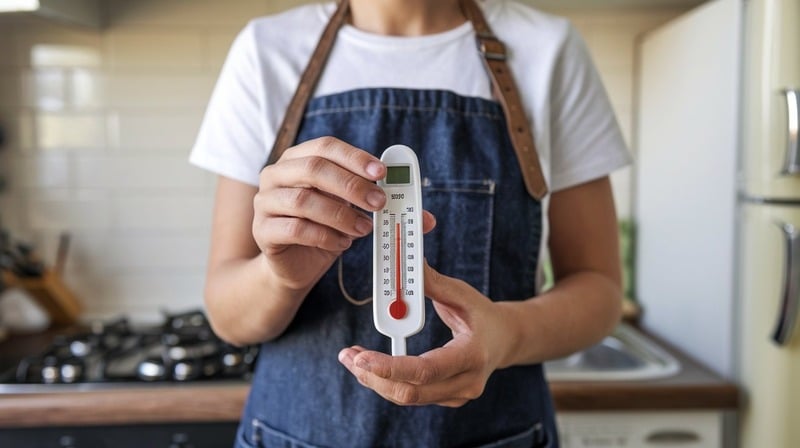It’s 95 degrees outside, and you’re starting to feel like a human marshmallow about to melt. Your shirt is sticking to your back, your head is pounding, and you’re wondering if you’ve accidentally walked into a sauna instead of your backyard. Heat isn’t just uncomfortable-it can be seriously dangerous if you’re not careful.
But here’s the good news: heat exhaustion isn’t something you have to just accept as part of summer. With the right knowledge, you can outsmart the heat and keep yourself (and your family) safe. This guide will walk you through everything you need to know about staying cool and avoiding those miserable heat-related health risks.
Table of Contents
ToggleWhat Exactly is Heat Exhaustion? (And Why Should You Care)
Let’s be serious concerning heat exhaustion. Your physique is a highly sophisticated cooling mechanism that sometimes gets the shakes.
When the heat is on and your internal thermostat can’t take it, you’re in the danger zone. Heat exhaustion occurs when your body loses too much water and salt through overdriven cooling. That draws too many resources from your working muscles and sends your heat tolerance into freefall.
Most people don’t realize this: Your body’s warning light before a total system failure is heat exhaustion. Unlike heat stroke, which is a life-threatening emergency, heat exhaustion signals that it’s time to stop and cool down. Think of it as the human body’s temperature gauge moving into the red zone-you’re not there yet, but you’re dangerously close.
Warning Signs Your Body is Overheating
When heat exhaustion starts to creep in, your body essentially sends out SOS signals. You might feel lightheaded and dizzy, almost as if you’ve just stepped off a ride that spins. Excessive sweating is your first clue, but not just a little bit of sweat. We’re talking about copious amounts of sweat that make you feel like you’re in a sauna, and you seem incapable of shutting it off.
Additional warning signs to watch for are a fast and weak pulse, muscle cramps that feel like tiny lightning bolts, and extreme fatigue. Think of the lawn you’re mowing today. Not long ago, I was forced to stop what I was doing because the heat got to me.
I felt like I’d just run a marathon. You’re not supposed to push through that. If you ignore that sign, you’re headed for fainting dead away. And then there’s the matter of your temperature. Overheated muscles are not just tired; they’re dangerous. Skipped jazzercise in the heat equals dead-from-the-heat muscles.
You May Like: When Is The Best Time To Get A Flu Shot?
Hydration: Your Secret Weapon Against the Heat
Water is life, and when it comes to survival, there is no substitute. Of course, there are sodas, teas, and other beverages that can momentarily slake your thirst, but when you’re out in the world sweating like a fountain, plain water is your best bet for hydration.
Actually, no, it’s not just plain water; it’s water with electrolytes, which is what they have in most of the world. Sodium, potassium, and magnesium are the indispensable trio, billing themselves as essential for brain and muscle function, not to mention the maintenance of life itself.
What does this mean for you? It means you need to stock up on electrolyte replacement drinks and make sure you’re consuming enough fluids to stay hydrated.
Keep a refillable water bottle with you and set reminders to drink (even if you’re not thirsty). If making your own electrolyte drink seems too complicated, opt for quality packaged products like coconut water or sports drinks-just steer clear of the ones loaded with sugar.
Clothing Matters: What to Wear When It’s Blazing Hot
Differing types of clothing offer varying levels of protection against intense heat. Light colors and looser fits top the list of defenses.
Whereas dark colors absorb heat, a light color makes you much less likely to be a human heat magnet. Think about what goes next to your skin – for that, almost nothing is better than cotton. It’s lightweight, it’s breathable, and it wicks moisture well.
For the next layer and any layers beyond that, think about movement, space, and the creation of humidity. If you work or play outside, opt for lightweight long-sleeved shirts that let the sun’s rays through but allow the air to circulate; that way, you’ll stay cool even in the hot sun. And don’t just limit yourself to wearing sun-productive shirts; make wearing a wide-brimmed hat part of your everyday sun-safety routine.
Smart Strategies for Outdoor Activities [For 2025]
When it comes to beating the heat, timing is everything. Your best windows for outdoor work or exercise are the very early morning or the late evening. Don’t even think about it from 10 a.m. to 4 p.m., when the sun is at its zenith and the heat is most intense.
When outside during the blazing heat, take ample breaks in the shade. For the poor souls laboring outdoors, switch tasks regularly to avoid being in the sun for extended periods and don light, protective gear. Most importantly, pay attention to what your body is telling you. If you’re in the Round Rock or Austin area, be extra cautious during summer heat.
When to Say “Nope” and Get Inside?
Some heat is serious. Should the temperature rise over 90°F and high humidity makes it feel even hotter, it’s critical to put safety first. Keep a lookout for signs signaling the onset of severe heat exhaustion-like confusion and a sudden loss of consciousness.
Seek medical attention right away if symptoms don’t go away after you’ve moved to a cool part of your house, drunk some liquids, and rested a bit.
Heat stroke can develop rapidly and be potentially fatal if not handled quickly. And remember, there’s nothing you’re doing outdoors-working, exercising, or just playing-that’s worth putting your life on the line.
Final Words
Summer heat doesn’t have to be your enemy. By understanding how your body responds and taking some simple precautions, you can enjoy those sunny days without turning into a sweaty, exhausted mess. Your health is worth those extra few minutes of preparation.
Key Takeaways: • Listen to your body • Stay hydrated • Know your limits • Don’t be a hero in extreme heat. Got your own heat survival tips? Drop them in the comments and help other readers stay cool!



